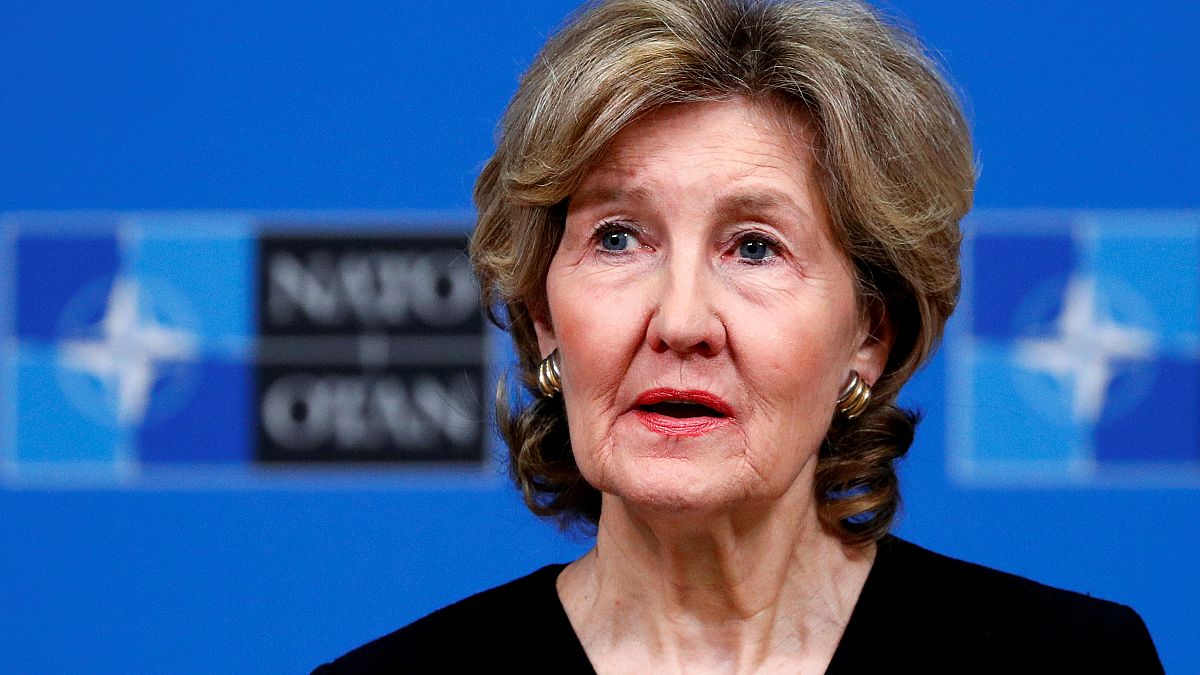The US accuses Russia of violating a 1987 treaty banning both countries from developing medium-range warheads.
The US envoy to NATO has sparked anger in Moscow after she appeared to threaten a strike to "take out" Russian missiles she says are violating a long-standing arms control treaty.
Kay Bailey Hutchison, the US permanent representative to NATO told reporters on Tuesday that the US had evidence that Russia was in violation of a 1987 treaty preventing it from developing intermediate-range missiles.
"We have shown Russia the evidence that we have, that they are violating the treaty," Hutchison said from Brussels on the sidelines of a NATO Defence Ministerial meeting.
"They are building a medium-range ballistic missile in violation of the INF. That is a fact which we have proven," she added.
Asked what measures the US was envisaging should Russia fail to abide by NATO's call for dialogue, Hutchison replied "the countermeasures would be to take out missiles that are in development by Russia in violation of the treaty."
"Getting them to withdraw would be our choice, of course. But I think the question was what would you do if this continues to a point where we know that they are capable of delivering. And at that point we would then be looking at a capability to take out a missile that could hit any of our countries in Europe and hit America in Alaska," she added.
What's the INF Treaty?
The Soviet Union achieved strategic parity with the US in the mid to late 1970s and started developing missiles that were more mobile, accurate, easily deployable and concealable and that could cover targets in Western Europe, North Africa, the Middle East but also Asia, Southeast Asia and the US state of Alaska.
They thus ushered in "what was perceived as a qualitative and quantitative change in the European security situation," according to the Intermediate-Range Nuclear Forces (INF) Treaty.
Signed in 1987, the INF Treaty required the US and Soviet Union to eliminate and permanently commit not to develop nuclear and conventional ground-launched ballistic and cruise missiles with ranges of 500 to 5,000 kilometres.
By June 1, 1991, implementation deadline, the two countries had destroyed a combined total of 2,692 short-, medium-, and intermediate-range missiles.
The US first raised concerns about a possible Russian violation of the treaty in 2014, and repeated such claims in subsequent years.
NATO announced in December that allies had "identified a Russian missile system that raises serious concerns," urging Russia to engage in bilateral dialogue with the Alliance.
"Allies emphasise that a situation whereby the United States and other parties were abiding by the treaty and Russia were not – would be a grave and urgent concern," the NATO statement said.
'Aggressive rhetoric'
Russia, which denies that it is in violation of the treaty, labelled Hutchison's comments as dangerous.
"It seems that people who make such statements do not understand the degree of their responsibility and the danger of such aggressive rhetoric," Russian Foreign Ministry spokeswoman Maria Zakharova is reported as saying on Tuesday by Russian news agency TASS.
"Who has this lady been authorised by to make such statements? By the American people?," she added.
As the diplomatic row threatened to escalate, Hutchison took to Twitter to walk back some of her comments, affirming that she had not been talking about "preemptively striking Russia."
"Russia needs to return to INF Treaty compliance or we will need to match its capabilities to protect US & NATO interests," she added.
US State Department spokeswoman Heather Nauert later told a press conference: "What Ambassador Hutchison was talking about was improving overall defence and deterrence posture.
"The United States is committed to upholding its arms control obligations and expects Russia to do the very same thing," she added.
